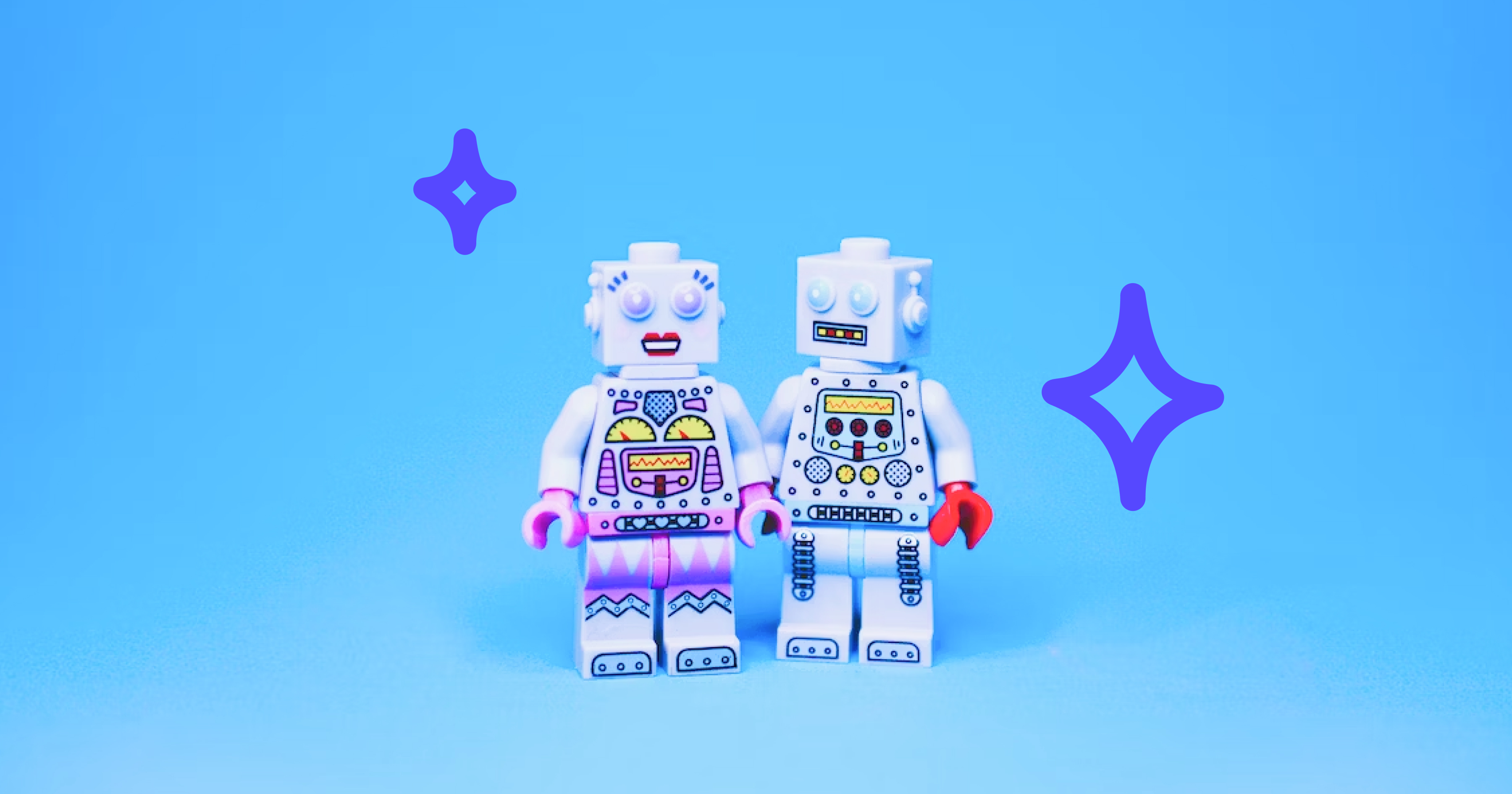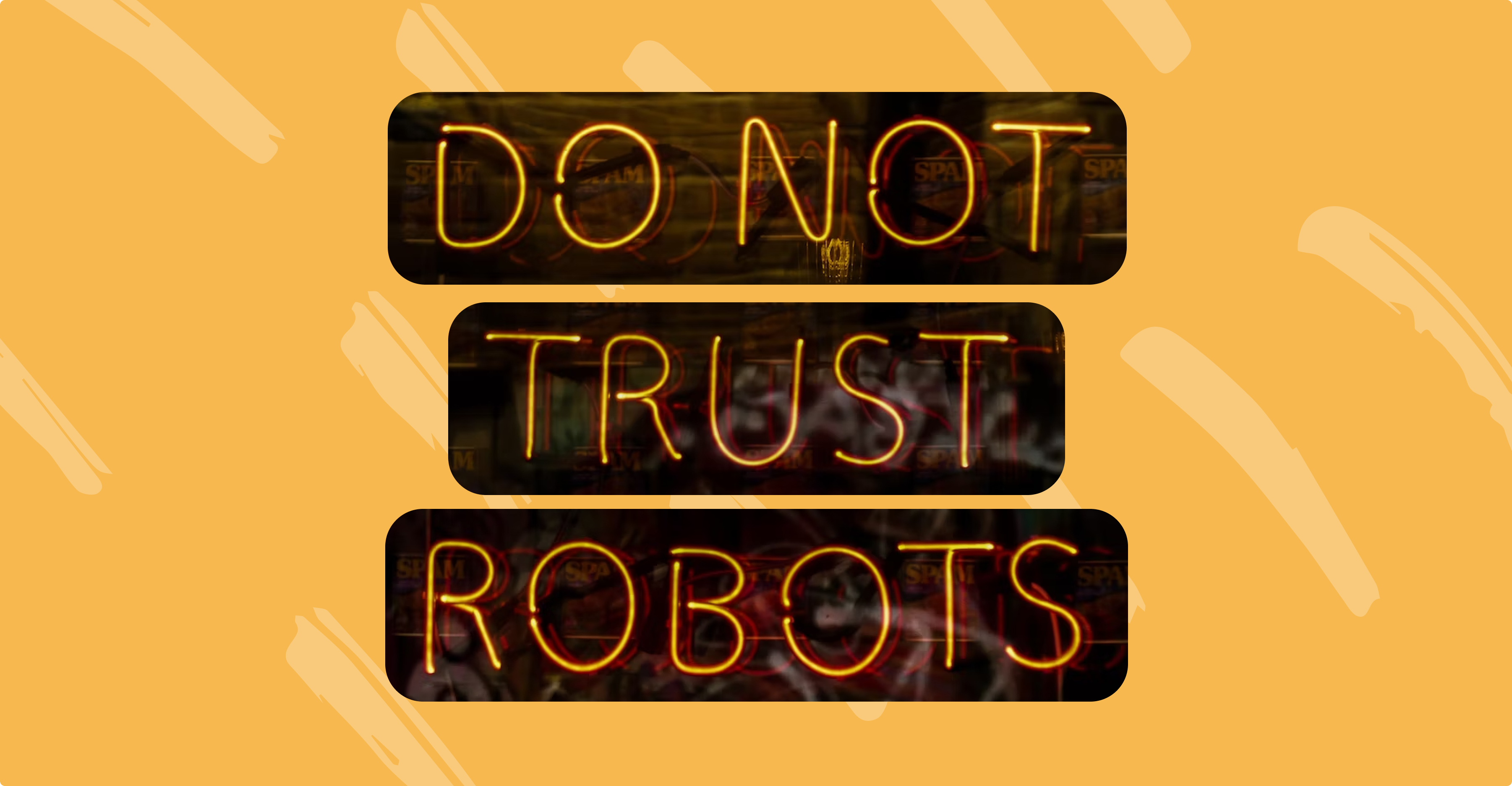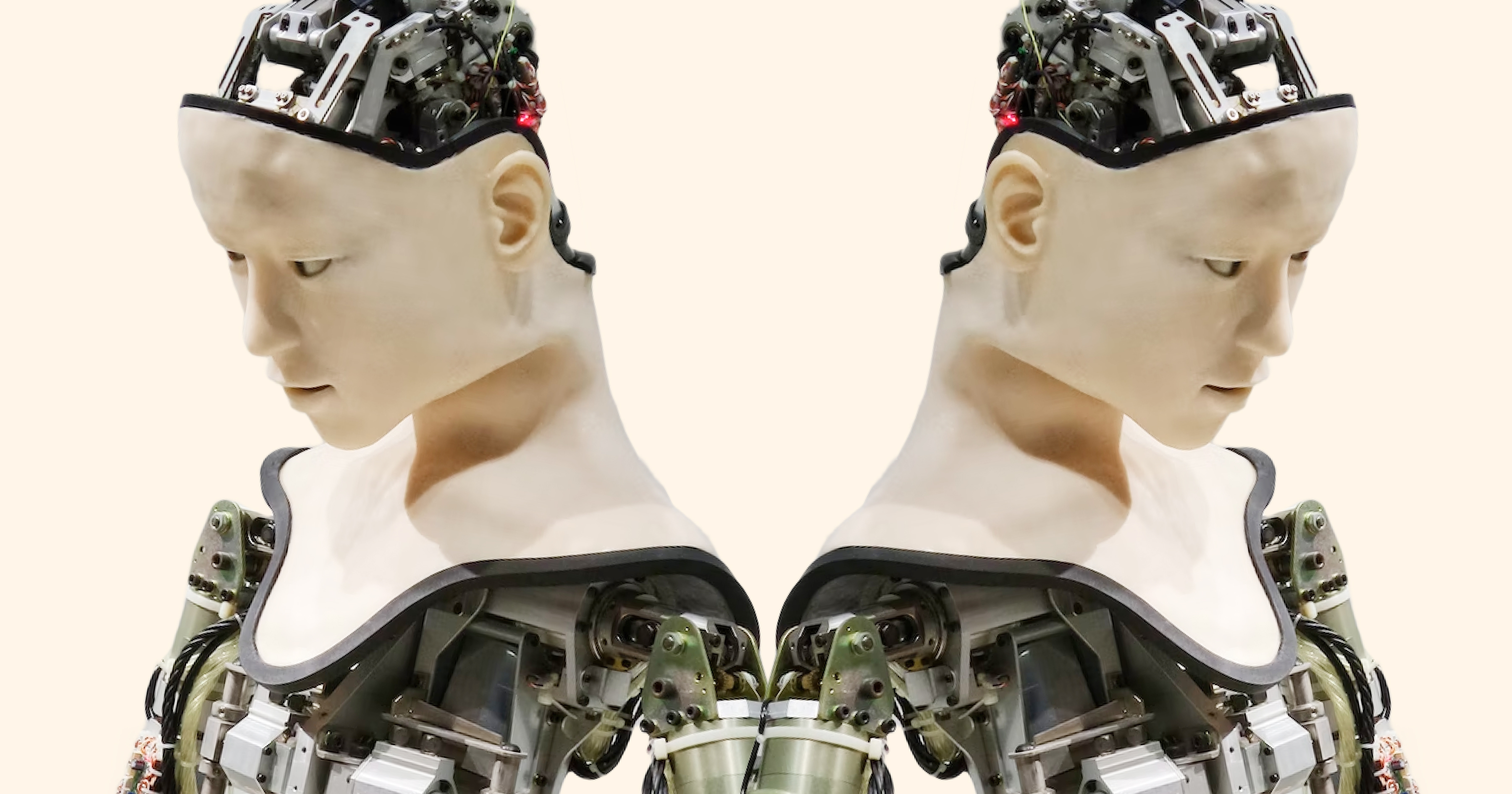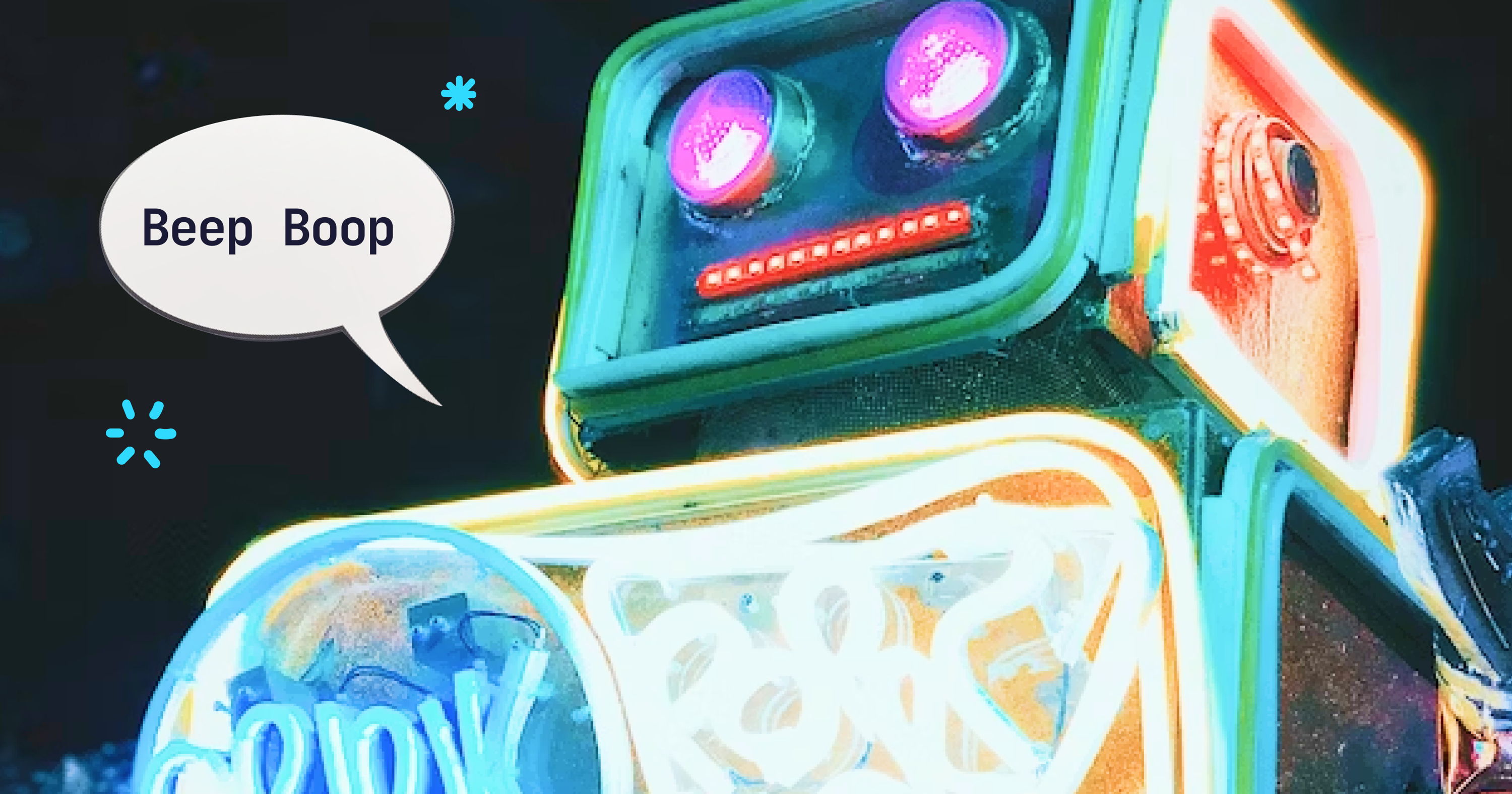
How AI will change PR (and what that means for you)
Artificial Intelligence is here – and it's coming for PR
We didn't expect this day would come so soon.
We thought we still had time.
But the AI overlords are knocking at our door and demanding all of our jobs.
Not really, but it can feel like that if you tune into the cacophony of hype surrounding ChatGPT, GPT-4, and all of the other dystopian-sounding acronyms that people have been throwing around like confetti since ChatGPT's release in November 2022.
So we have to ask: how is AI going to change communications? What does this mean for your friendly neighborhood PR professional? And will comms simply devolve into a bunch of robots talking to one another?
In short: yes.
There are many differing opinions on the topic of how AI will change many industries, including comms. If you ask AI itself, it reassures you with dulcet tones that it is not, in fact, gunning for your job:

But really, there have been a lot of conversations about how automation and technology will impact the livelihood of people who are starting to feel… a little concerned.

(Of course in an ideal world, AI would replace both journalists and PR people, leaving us free to work on making Margarita Fridays more of an everyday vibe.)
To say people are panicked is an understatement.
AI chatbots went from clunky, borderline useless toys to an incredibly popular craze, seemingly overnight. And people seem to be falling into one of two camps:
- Those who have embraced AI with no reservations and are completely leaning into the idea of ChatGPT and other AI programs completely taking over and revolutionizing the world
- Those who fear change, think AI is a fad, and are super resistant to embracing it
Realistically, the future is likely somewhere in the middle. It will change a lot of things, but 99% of people won't lose their usefulness completely overnight (and as a professional writer, I kind of need to believe that). Particularly in the PR industry, things are inevitably going to change. But that doesn't necessarily mean we should all give up hope and throw away our computers (yet).
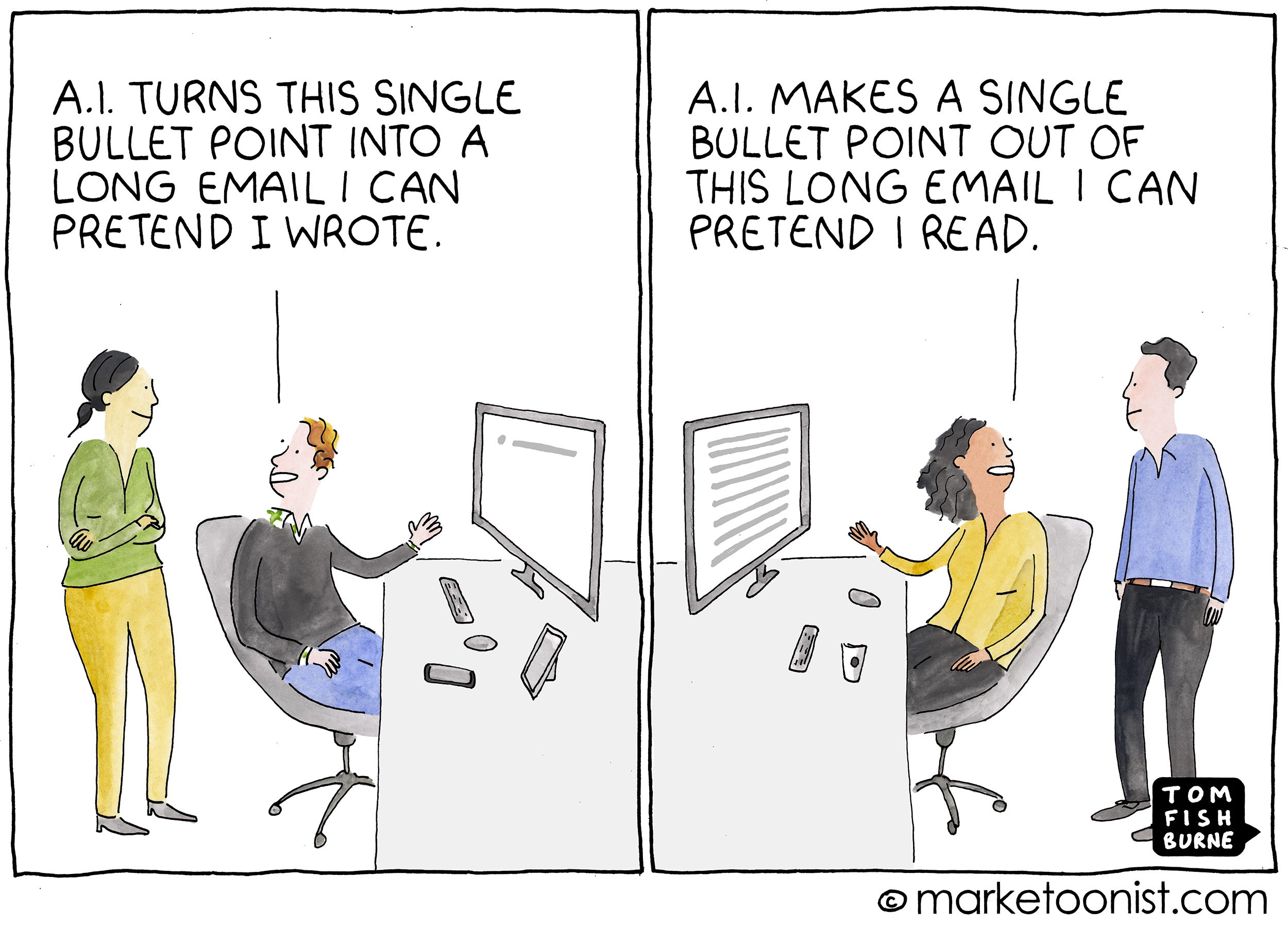
AI can be a powerful tool to bolster PR if it's used correctly. In this article, we'll discuss the benefits of AI, talk about some of the drawbacks, and analyze the nuance of this new tech in the PR industry.
The pros of AI in PR
Before we panic too much, what good can we expect to come from AI in the communications field, and what new technology should we get excited about?
Your new AI friends are now capable of handling the mundane aspects of the average PR and marketing job. And trust us, we love to automate where we can.
You can ask chatbots to create a variety of first-draft technical documents, do some preliminary research, and help you get over a case of writer's block.
ChatGPT and other AI tools can create (admittedly quite generic) first-draft copy for things like emails, job descriptions, and other dry-but-necessary text.

Some examples of cool, boring crap the robots can now do:
- Analyze your writing for improvements and tone
- Suggest schedules and prioritize tasks
- Provide synopses of large texts
- Create first-draft social posts, press releases, and other standard copy
- Suggest variations in length and tone, giving you a great wall to bounce off
AI is pretty good for brainstorming ideas. In the same way that creatives previously looked to the stars or Pinterest for inspiration, we can now type prompts into ChatGPT.

AI can jump-start the process from a blank screen to a slightly less blank screen. In its current form, ChatGPT is a really robust brainstorming tool and can bolster creativity (but not necessarily replace it).
I've used AI and Chat GPT to give me a baseline when I'm lacking creativity. It's helped me brainstorm new ideas and angles to use with my clients.
I don't think this will completely replace comms jobs, but it will start to reduce them. As AI gets smarter, I believe there will be a decrease in freelance and contractors since this can now be in-house.
Like everything, there's a good and evil side to Chat GPT. I've seen many PR professionals start to respond to reporters with AI answers "from their expert source" which is worrisome. It makes you wonder if reporters aren't careful, they're putting out general information created from AI. However, I think it will help the creative side of work when you hit a wall.
AI, and I cannot stress this enough, will not replace high-quality creatives. In fact, one might argue that with the proliferation of AI and chatbots, the need for quality, engaging content has never been greater. But, when used correctly, AI can streamline the process and leave you more time to do the important stuff that a soulless robot could never do.
AI is not limited to ChatGPT and other similar chatbots, of course, and many tools have already been making the lives of PR professionals and agencies easier for years. But here are a few things AI cannot and will not do for PR.
We here at Prezly talk a lot about building relationships in PR because generic spam is not a new thing that was born the day ChatGPT was released. Countless marketing and comms "gurus" have been cluttering inboxes with generic pitches long before it was cool to do so.
Relationships take work, effort, personality, and collaboration. The good news? AI will be great because it can automate some of the "boring stuff", which will free you up to actually have those engaging conversations and collaborations with media contacts and journalists.
But there's a fine line to be walked when we talk about how AI can facilitate relationships. Over-relying on AI to generate pitches will be quite obvious to any seasoned journalist, particularly as your competitors (aka your enemies) are probably using those same exact tools and prompts. Stand out from the crowd by actually being human and building relationships like a human might (Margarita Fridays).
👉 How to do PR outreach (and 10 garbage fire mistakes to avoid)
Strategic thinking is another popular topic here at Prezly because strategy is, and will forever continue to be, at the forefront of exceptional public relations.
AI is not prepared to help you think strategically. It can certainly augment your strategy efforts, but it cannot (and should not) be in charge of high-level creative decision-making or make strategic decisions based on data analysis.
Ultimately, these decisions need to be made by the brand based on its unique vision and ethos.
Take a deep breath, copywriters.
There's been a lot of talk about artificial intelligence disrupting a number of industries, from law to medicine. But few industries have had their death sentence predicted as much nor as confidently as copywriting. And art. And music. Really, any creative industry, but particularly writing.
Why is that? Well, for one, a lot of people think that because almost everyone can write, it means that it's easy. CEOs, small business owners, and accounting teams see ChatGPT pump out 2,000 words in a few seconds and think, "Ah, guess who no longer needs copywriters!"
Communications professionals will be more important than ever as companies fight to become discernible from one another. They will need that human touch to make sure their company also appears human.
Especially in the case of online content marketing, it’s no longer good to exist—Ai can help with the output for that. Now, we have to be creative.
Don't get me wrong, ChatGPT is an impressively adequate Language Learning Model, but at the end of the day, it is just that: a Language Learning Model. A glorified text prediction tool. It is not a creative thinker, an innovator, or an artist (as much as Midjourney would like you to believe otherwise).
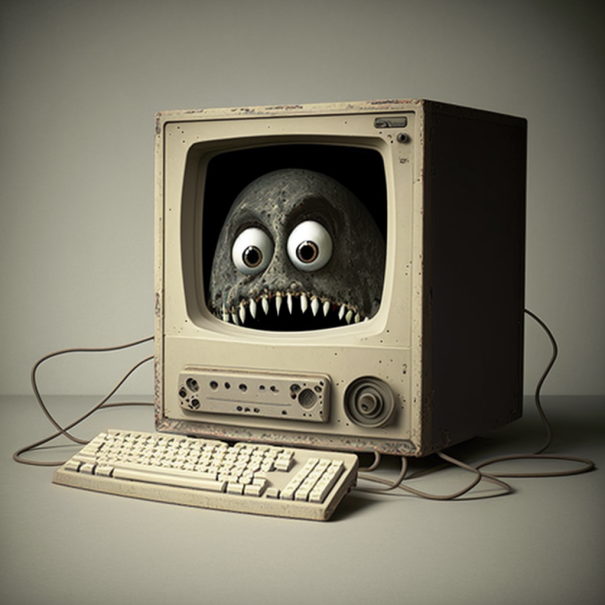
While many companies and brands will move towards a more integrated AI/human approach due to its aforementioned benefits, AI will not replace good, human copy.
As impressive as ChatGPT is, it will not do better at your job than you will. Unless you're really, really bad at your job.
But realistically, ChatGPT is not making endless amounts of creative, unique content for every user. It's creating slight variations of the same content for everyone.
And also, keep in mind that anything you can produce with AI can be created by literally anyone else. If AI is the be-all, end-all of your creative process, you're essentially setting yourself up to be replaced.
The future of PR isn't letting AI do your job; it's using AI to do the boring parts so you can be amazing at your job.
Not to sound facetious, but so far the only way the various AI chatbots have changed my workday is that when I’m reading various newsletters or scrolling through LinkedIn, many of the articles and posts are about generative AI now.
As someone who deals largely with content strategy, which involves a lot of analysis and strategic thinking, I haven't found a way yet to incorporate AI chatbots into my workflow. There will be a much greater emphasis put on the things AI can’t replicate, like lived experiences, knowledge based on years of real-world experience, and strategic thinking. Expertise backed by actual experience is going to come to the forefront of content marketing and corporate communications. AI will ultimately be good for corporate communications and digital marketing, but not because of its productivity enhancement, which is often what gets touted. It will lead to companies concentrating on more valuable content based on their expertise and actual experience to set themselves apart from companies using generic computer generated content.
The technology is still developing, but as it stands in the year 2023, AI is often very, very wrong. About a lot of things. About enough things that should not be relied upon to be the entire research process.
This is due in large part to the fact that AI does not, by default, provide sources, nor does it know what is fact and what is just some random thing it made up.
"Antoine De Machelet was born on October 2, 1798, in the city of Ghent, Belgium. Machelet was a chemist and philosopher, and is best known for his work on the theory of the conservation of energy. . . . "
– Steven Johnson, "A.I. Is Mastering Language. Should We Trust What It Says?", The NY Times Magazine
At this time, it's super important to double-check any information you get from any AI software.
PR, like many industries, is rapidly changing. Embracing the power of AI in PR while recognizing its limitations is crucial to staying competitive despite any current and future industry upheavals.
And maybe learn binary to best connect with the robot overlords.
If an easier, more streamlined workflow is something you want in your PR life, why not check out Prezly? Prezly is a tool that does all the crappy bits of coding a newsroom, creating beautiful PR campaigns, managing contact lists, and more.
Katelynn Sortino
Published April 2023
